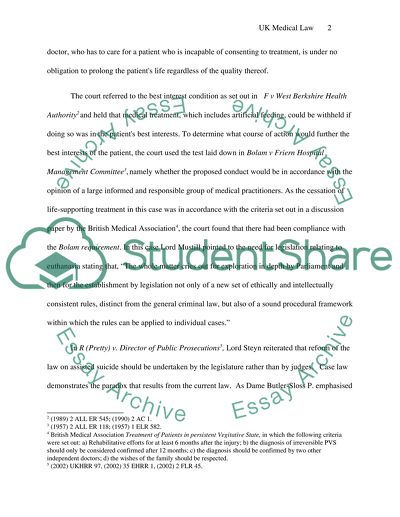Cite this document
(“UK Medical Law Essay Example | Topics and Well Written Essays - 1250 words”, n.d.)
UK Medical Law Essay Example | Topics and Well Written Essays - 1250 words. Retrieved from https://studentshare.org/law/1520969-uk-medical-law-essay
UK Medical Law Essay Example | Topics and Well Written Essays - 1250 words. Retrieved from https://studentshare.org/law/1520969-uk-medical-law-essay
(UK Medical Law Essay Example | Topics and Well Written Essays - 1250 Words)
UK Medical Law Essay Example | Topics and Well Written Essays - 1250 Words. https://studentshare.org/law/1520969-uk-medical-law-essay.
UK Medical Law Essay Example | Topics and Well Written Essays - 1250 Words. https://studentshare.org/law/1520969-uk-medical-law-essay.
“UK Medical Law Essay Example | Topics and Well Written Essays - 1250 Words”, n.d. https://studentshare.org/law/1520969-uk-medical-law-essay.


